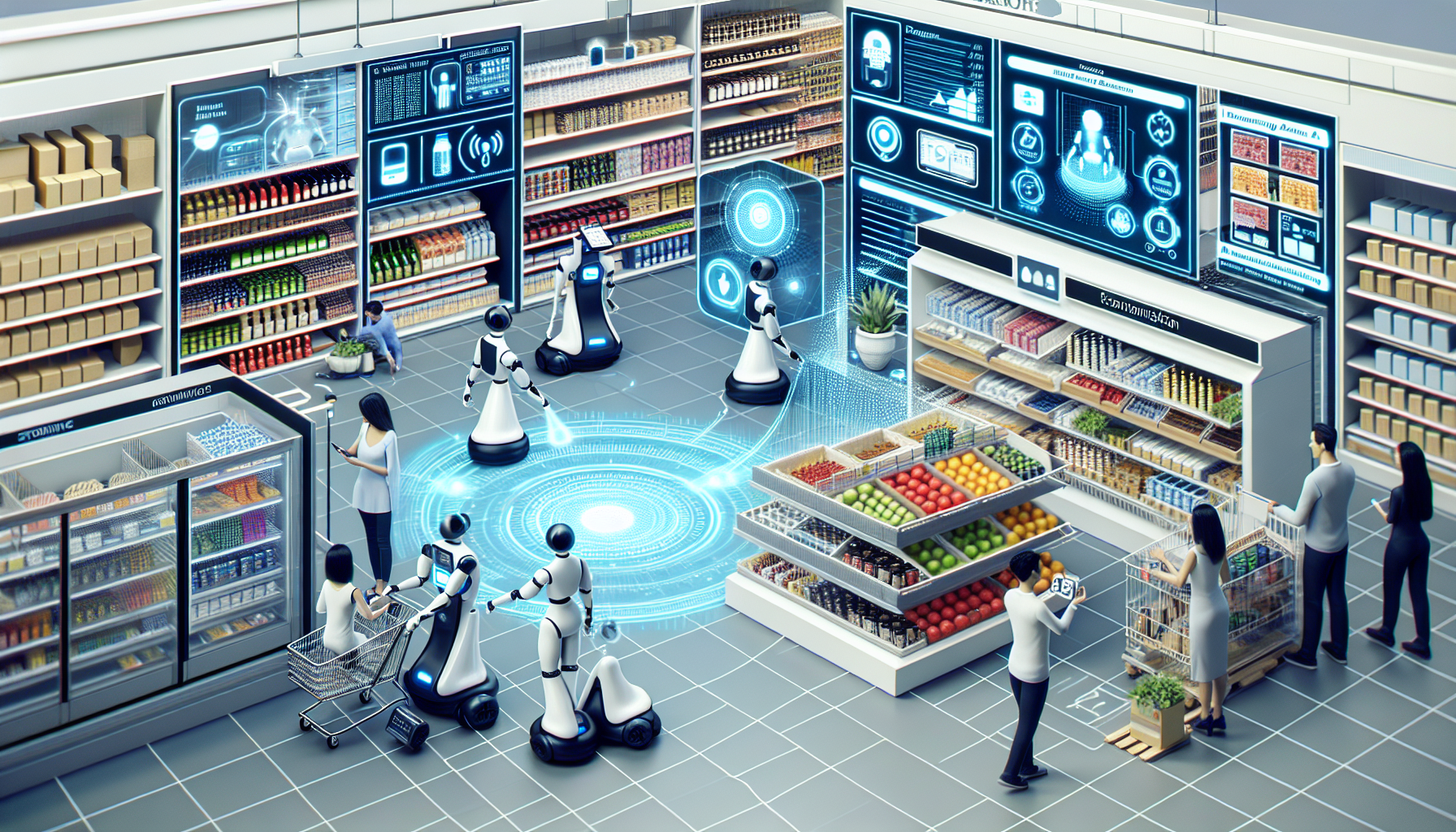AI and Automation in Retail: Transforming Customer Experience and Inventory Management
The Landscape of AI in Retail
Retailers today are embracing artificial intelligence (AI) and automation technologies to enhance their operations. AI, which involves machine learning and data analytics, is not just a buzzword; it is reshaping how businesses interact with customers and manage their inventory. According to a report from McKinsey, AI can create an economic value of up to $2.6 trillion in retail by improving customer insights and streamlining procedures.
Enhancing Customer Experience Through AI
Personalized Shopping Experience
One of the most significant impacts of AI in retail is the ability to provide a personalized shopping experience. Machine learning algorithms analyze customer data, including past purchases, browsing behavior, and demographic information, to curate tailored recommendations. For instance, e-commerce giants like Amazon utilize sophisticated recommendation engines that suggest products based on individual user behavior.
Virtual Assistants and Chatbots
Chatbots and virtual assistants powered by AI are revolutionizing customer service in retail. These automated tools can handle inquiries and provide support around the clock. They use natural language processing (NLP) to understand customer queries and offer relevant solutions. Retailers like Sephora have successfully implemented chatbots to guide customers through product selection, enhancing user experience and driving sales.
Visual Search Technology
Visual search tools allow consumers to search for products using images instead of text. AI analyzes the photos uploaded by customers and matches them with inventory items, making the shopping process seamless. Retailers such as eBay and Pinterest have integrated visual search capabilities, significantly improving customer engagement.
Automating Inventory Management
Real-time Inventory Tracking
AI-driven inventory management systems enable retailers to monitor stock levels in real-time. Automating inventory tracking reduces human errors, ensures accurate stock levels, and helps avoid overstocking or stockouts. Solutions like RFID tags and IoT devices feed data into inventory management systems, allowing retailers to make informed decisions quickly.
Smart Reordering Systems
AI systems can also automate the reordering process. By analyzing sales trends and seasonal fluctuations, these systems predict when an item will run low and trigger reorders automatically. Retailers using AI for automatic replenishment can maintain optimal stock levels while reducing the burden on inventory managers.
Demand Forecasting
Accurate demand forecasting is vital for efficient inventory management. Using historical sales data, AI tools analyze patterns and predict future buying behaviors. Retailers can adjust their purchasing accordingly, thus reducing waste and improving cash flow. A study by Deloitte shows that predictive analytics can improve demand forecasting accuracy by 20-30%.
Streamlining Supply Chain Operations
Enhanced Supplier Relationships
AI facilitates better communication and collaboration among suppliers and retailers. Machine learning algorithms can evaluate supplier performance, predict potential supply chain disruptions, and suggest alternatives. By maintaining robust supplier relationships, retailers can ensure timely delivery and minimize delays.
Route Optimization for Deliveries
Logistics is a critical component of retail operations. AI applications can analyze various factors, such as traffic patterns, weather conditions, and delivery schedules, to optimize delivery routes. This optimization not only speeds up delivery times but also reduces fuel consumption and costs.
Data-Driven Decision Making
Analytics and Insights
AI’s ability to process large datasets enables retailers to derive actionable insights. Detailed analytics on customer behavior, sales patterns, and market trends assist retailers in making data-driven decisions. Retailers can leverage dashboard tools that visualize performance metrics, providing clarity on various aspects of their business.
A/B Testing for Strategy Optimization
AI technologies enhance A/B testing capabilities, allowing retailers to assess the effectiveness of different strategies in real-time. For instance, a retailer can test two different layout designs on their website or different promotional offers. The AI system will analyze customer responses and recommend the most effective option to maximize conversion rates.
Challenges in Implementing AI and Automation
Data Privacy Concerns
With the use of AI comes the responsibility of protecting consumer data. Retailers must comply with laws and regulations, such as the GDPR in Europe, to avoid legal ramifications. Focusing on transparency and building consumer trust is essential for successful AI integration.
Initial Investment Costs
The upfront costs of implementing AI technologies can be daunting for many retailers, especially smaller businesses. However, strategic planning and careful budgeting can lead to long-term savings and increased profitability. Many startups offer scalable solutions that allow retailers to start small and expand as their needs grow.
Integration with Legacy Systems
Integrating AI with existing legacy systems can pose technical challenges. Retailers need to ensure compatibility and streamline transition processes to leverage the full potential of AI capabilities. Adopting a phased approach can help mitigate risks associated with system integration.
The Future of AI in Retail
Emerging Technologies
As AI continues to evolve, retailers will start to adopt new technologies such as augmented reality (AR) for immersive shopping experiences, and advanced robotics for inventory management and customer service tasks. Combining AI with these technologies will further enhance operational efficiency and customer satisfaction.
Sustainable Retailing
AI will also play a crucial role in promoting sustainability within the retail sector. By optimizing resource allocation, improving supply chain efficiency, and anticipating consumer trends, AI can help retailers reduce waste and promote eco-friendly practices.
Continuous Learning and Adaptation
AI systems are inherently designed for continuous learning. Retailers that invest in ongoing AI training and adaptation will likely remain market leaders. This adaptability allows businesses to maintain a competitive edge by responding swiftly to changing consumer behaviors and market dynamics.
By harnessing AI and automation, retailers can transform the shopping experience and streamline inventory management processes. The journey of integrating these technologies may pose challenges, but with strategic planning, the potential benefits can lead to sustained growth and customer loyalty.


